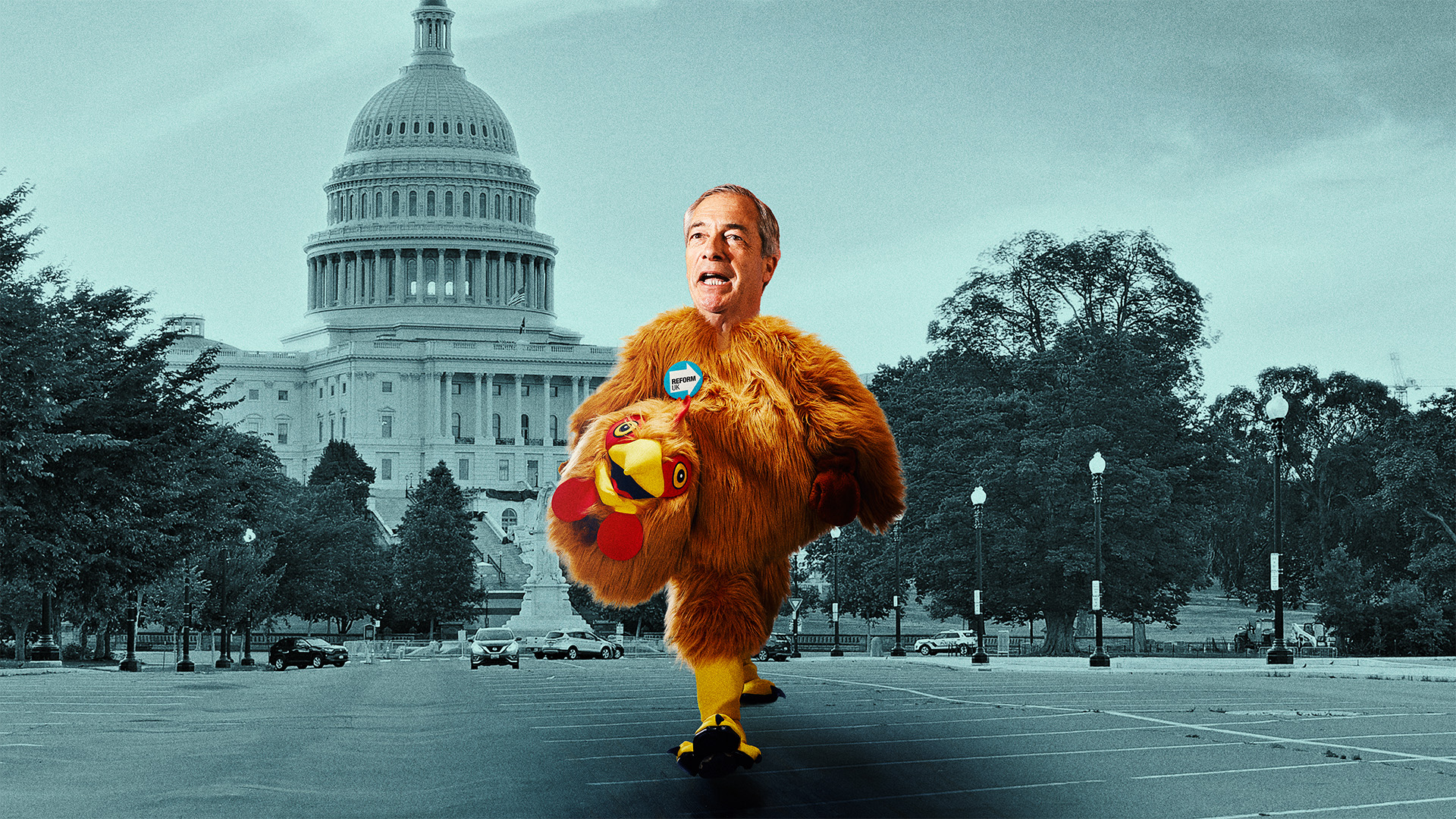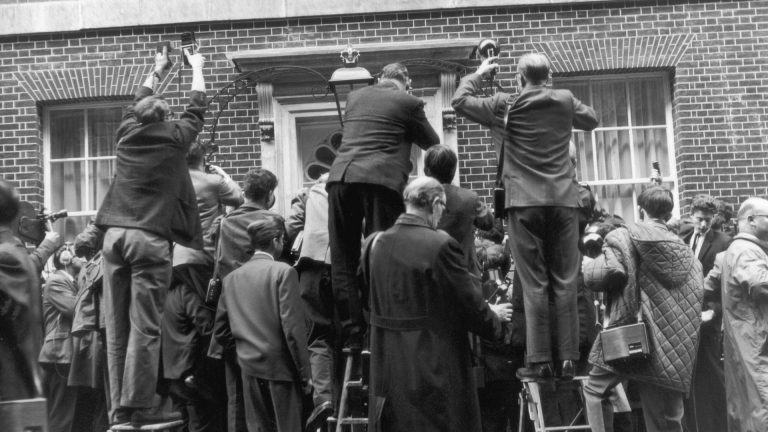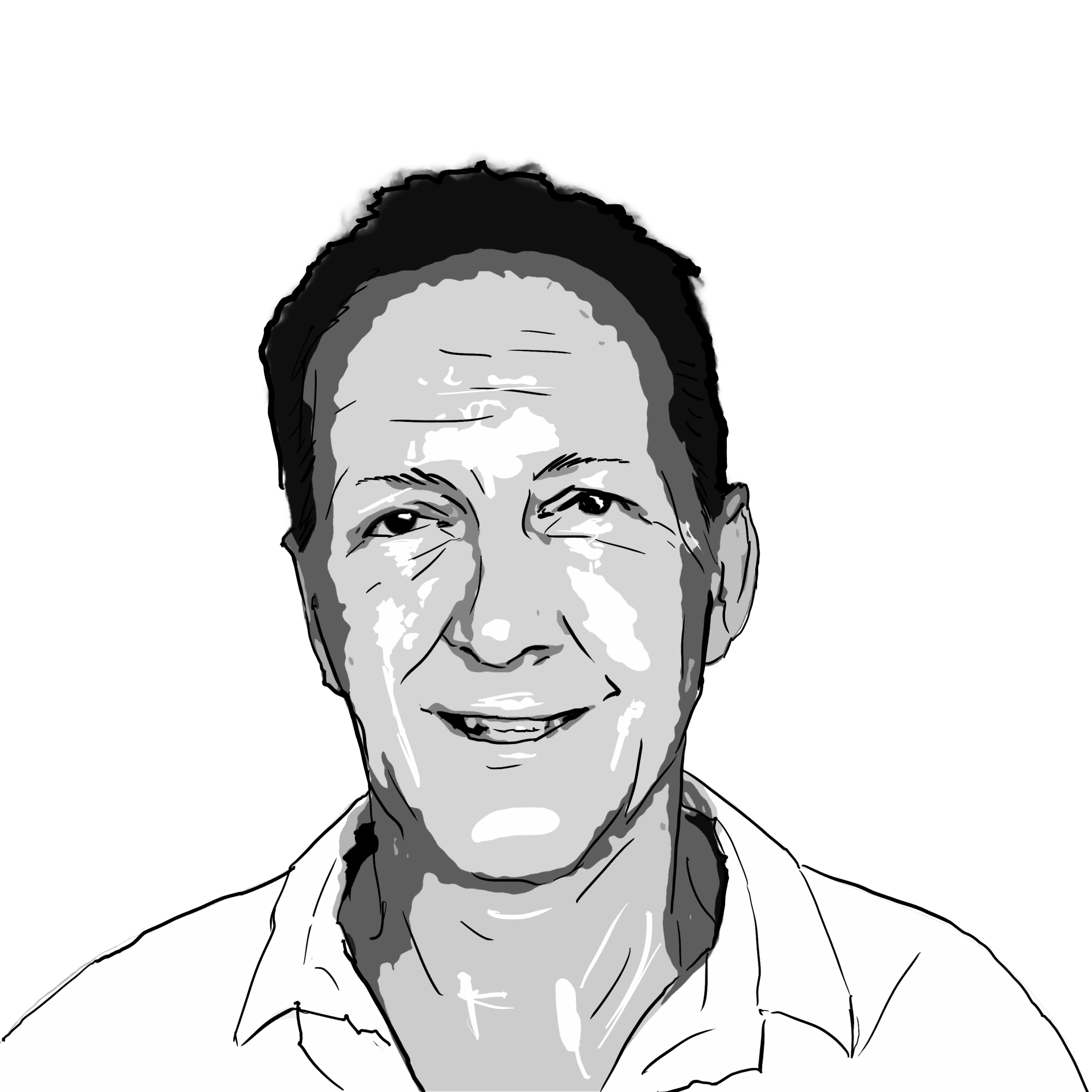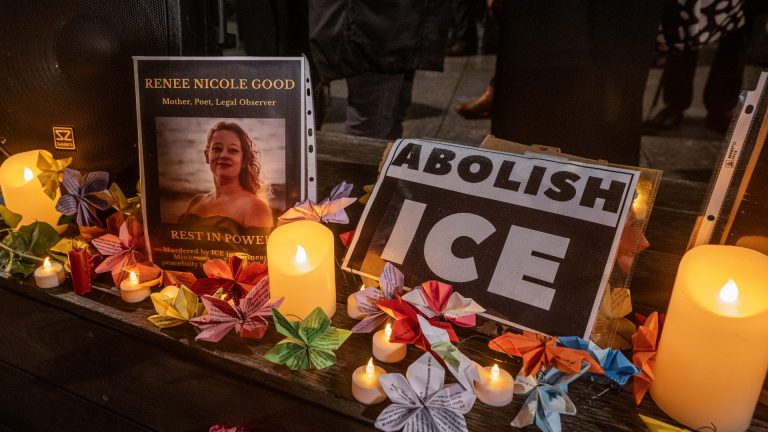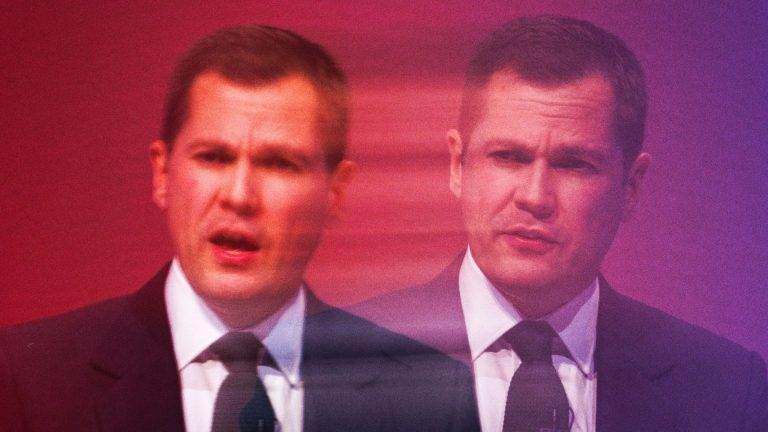When Nigel Farage decided to spend the first days of this new parliamentary session in Washington DC instead of the House of Commons, he probably had visions of playing the statesman.
Reform, as he likes to note, is leading in all the national polls, and he is closer to being prime minister than he has ever been. So, rather than attend the first Prime Minister’s Questions of the autumn, Farage was in America. After all, why represent Clacton when you can jetset instead? What could possibly go wrong?
As it turns out, almost everything.
Farage’s first planned engagement, on Tuesday night, was addressing the far-right National Conservatism conference on “Getting Mass Deportations Done” – at which he was due to be on stage alongside Donald Trump’s director of national intelligence Tulsi Gabbard and his former senior advisor Steve Bannon. Sadly, Farage missed the conference entirely, reportedly due to travel issues.
That left Farage with just one set-piece during his DC trip, which was giving evidence to the House Judiciary Committee’s hearing on “Europe’s Threat to American Speech and Innovation”. Amid lots of questions and griping about EU laws such as the Digital Services Act and the Digital Markets and Consumers Act, Farage hoped to raise cases about free speech in the UK, including by claiming that Lucy Connolly was jailed for “an intemperate tweet”, which in reality said to “set fire to all the fucking hotels full of the bastards”.
Suggested Reading
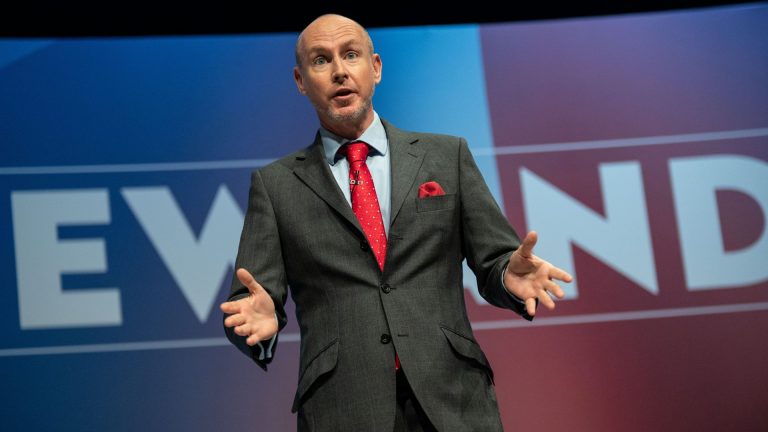

Where are the adults, cries Trump fan Daniel Hannan
He had not reckoned, though, on the efforts of congressman Jamie Raskin, the most senior Democrat sitting on the committee, who was no fan of his. In his opening remarks, Raskin dismissed Farage as a “far-right, pro-Putin politician”, who “calls England an authoritarian regime while saying that Vladimir Putin is the world leader he admires the most”.
A somewhat uncomfortable Farage looked to take the high ground in response to the opening salvo, thanking Raskin for his “delightful testimony”.
“But that’s fine, you can say what you like, I don’t care,” Farage remarked. “Because that’s what free speech is… we’ve kind of forgotten the Voltairean principles that we’ll fight and defend to the death your right to say something that we fundamentally disagree with. That is the absolute foundation of free speech, of democracy, of living in freedom.”
Raskin wasn’t about to let Farage rest on those laurels, though – pointing out that Farage had called for protests over Gaza happening over Remembrance Weekend in November to be banned, even though they were peaceful. Farage claimed he opposed the marches because it was “one particular sensitive day”. Raskin rebutted “I thought that was what freedom of speech was all about; you have a right to engage in speech that other people consider offensive or insensitive”.
Touché. But Raskin wasn’t done: having put one dent in Farage’s free speech credentials, he kept going.
“You’ve banned journalists from your political events, that you disagree with, haven’t you,” he asked, to stammered denials, before continuing. “Really? At your convention you didn’t ban journalists and revoke their credentials?… I’m asking you a direct question: why do you ban journalists who oppose your views from your events?”
“I don’t,” Farage responded. “I can’t think if I go back 25 years of banning anybody… maybe someone else did”
In reality, had Farage gone just three hours back in his memory, he would find an instance of Reform banning journalists it doesn’t like from its party conference: earlier on Wednesday, Reform denied accreditation to The New World – specifically, to the author of this article – to attend its party conference.
The application had been made months before, The New World received confirmation it was “successfully registered”, and all the criteria for accreditation had been met. The email even said they were “excited to welcome us” to the event. So, the very same day free speech champion Nigel Farage denied banning critical journalists from his events, his team did exactly that.
In theory, this could be more than just painfully ironic for Farage. Evidence sessions to Congressional committees are given under oath, and Farage had been sworn in before his exchanges with Raskin – opening him up to theoretical penalties of up to 12 months in US prison and fines of thousands of dollars.
In practice, Farage can claim to have been unaware of his party’s practice of banning its critics – though surely in that case he would wish to reverse such a policy, as a free speech champion? – and Congress would likely see the irony of trying to prosecute a foreign MP for what he said during a hearing on threats to free speech.
But the painful exchanges may have ruined what Farage has evidently hoped would be a more enjoyable day of sparring. The Reform leader eventually left the proceedings early, claiming that he had another engagement to attend – but refusing to elaborate when Democrats asked him if his early departure was so he could have lunch with Donald Trump. Citing “discretion”, Farage declined to answer.
A few minutes after his departure, Democrats called a point of order to interrupt proceedings. They had found out what had so urgently called Farage away from testifying to Congress, and it wasn’t a meeting with Trump. They had found him standing outside the building, they said. He was giving an interview to GB News.
A brief note from our editor in chief, Matt Kelly:
“If you want to back media that stands in firm opposition to everything Nigel Farage represents, you’ve come to the right place. Subscribe to The New World today.”


